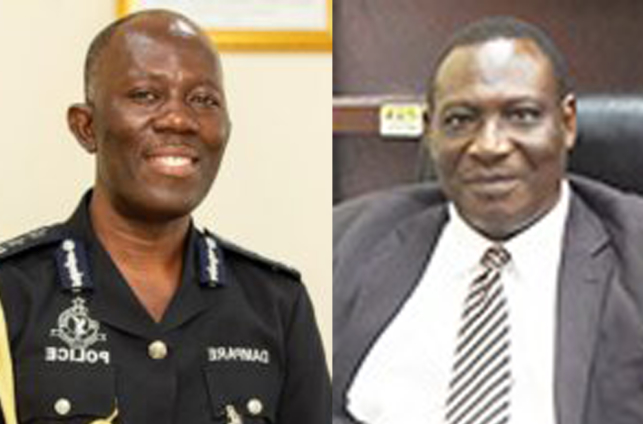The Ghana Statistical Service (GSS) has mounted a strong defense of its corruption perception report which ranked the Ghana Police Service as the most corrupt public institution in the country.
The GSS insisted that the methodology employed meets all international standards.
Inspector General of the Ghana Police Service, Dr. George Akuffo Dampare in a five-page letter to GSS and CHRAJ on Wednesday questioned the methodology used to conduct the survey.
“Our discomfort, therefore, is the use of selective ranking methodology to project the outcomes in a manner that puts an unfair focus on the Police Service with all the others in your corruption index escaping public scrutiny,” the IGP said.
However, Director of Social and Demographic Statistics at the GSS, Anthony Amuzu Pharin in an interview with JoyNews on Thursday explained that their methodology has no shortcoming despite the concerns raised by the Ghana Police.
“In terms of methodology, I do not see where there is any crack in it. It is a strong and solid methodology proven over the world and well tested. So it is not like because we left out an institution so there is a crack in the methodology…our target is an institutional level and we can decide to choose which group of the institutions we want to use to represent that,” he said.
Responding to the IGP’s concern about the GSS engaging the Police Service and the other institutions cited during the research, Mr. Pharin stressed that the survey was “completely a household survey.”
According to him, the research was solely based on the perceptions and experiences of households, thus the institutions could not be engaged.
“Whether what the household is telling us is wrong or right, the assumption is that we are taking what the households are saying and for us that is the assumption when we go for household survey…the assumption is that you are telling me the truth,” he explained.
Dr. George Akuffo Dampare has, however, described the research findings as “heavily challenged and corrupted from both the academic and practice point of view.”
Latest Stories
-
Gold Fields Ghana Foundation challenges graduates to maximize benefits of community apprenticeship programme
28 mins -
GBC accuses Deputy Information Minister Sylvester Tetteh of demolishing its bungalow illegally
39 mins -
Boost for education as government commissions 80 projects
51 mins -
NAPO commissions library to honour Atta-Mills’ memory
1 hour -
OmniBSIC Bank champions health and wellness with thriving community walk
1 hour -
Kora Wearables unveils Neo: The Ultimate Smartwatch for Ghana’s tech-savvy and health-conscious users
1 hour -
NDC supports Dampare’s ‘no guns at polling stations’ directive
1 hour -
Police officer interdicted after video of assault goes viral
1 hour -
KNUST’s Prof. Reginald Annan named first African recipient of World Cancer Research Fund
1 hour -
George Twum-Barimah-Adu pledges inclusive cabinet with Minority and Majority leaders
2 hours -
Labourer jailed 5 years for inflicting cutlass wounds on businessman
2 hours -
Parliament urged to fast-track passage of Road Traffic Amendment Bill
2 hours -
Mr Daniel Kofi Asante aka Electrician
2 hours -
Minerals Commission, Solidaridad unveils forum to tackle child labour in mining sector
2 hours -
Election 2024: Engagement with security services productive – NDC
2 hours

